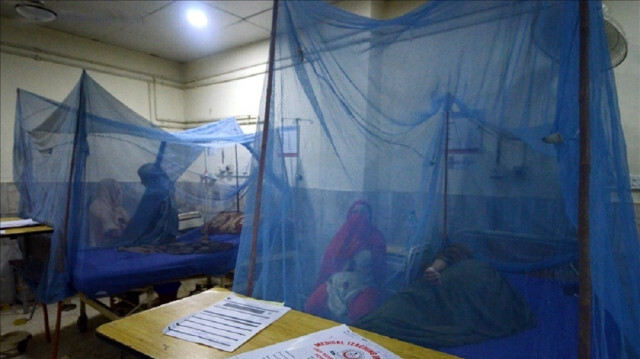

File Photo
Total number of dengue cases rises to almost 88,000, say officials
Health officials feared a deepening public health crisis in Bangladesh as authorities on Monday reported 18 more deaths due to mosquito-borne dengue fever.
With new casualties in the past 24 hours, the death toll rose to 416, including 318 in Dhaka, according to the Directorate General of Health Services (DGHS).
The total number of dengue cases rose to 87,891 since January this year. Of the total cases, 43,665 were reported from Dhaka, showed DGHS data.
Last year, 281 people died due to dengue, the second highest in history after the South Asian country started keeping records in 2000.
Public health experts saw no sign of immediate improvement in the dengue situation.
July this year reported 8-time higher dengue cases compared to the last corresponding year.
Benazir Ahmed, former director (disease control) of the DGHS, told Anadolu that the dengue cases have already crossed the number projected by local entomologists and WHO.
The World Health Organization (WHO) on Friday termed Bangladesh's dengue situation endemic and suggested swift measures, including entomological surveillance.
“The growing dengue infection has already overwhelmed the hospitals in Dhaka. Patients are seen taking treatment on the floors and verandas of government-run hospitals. Medicines crisis, including saline and fluid, affected the patients most which have already forced the authorities to allow imports of certain medicines,” he added.
The worrying development is that the dengue, which earlier affected Dhaka city, has been spreading across the country, all 64 districts, since July. “Yet we failed to develop strong surveillance in Dhaka in the past 23 years. We fear that such a fragile situation will prevail in other cities too for the next couple of years,” he warned.
Dengue is a viral infection transmitted to humans through the bite of infected mosquitoes but there is no specific treatment for dengue.
Meanwhile, Bangladesh’s climate conditions are becoming more favorable for the transmission of dengue and other vector-borne diseases due to excessive rainfall, waterlogging, flooding, rise in temperature, and the unusual shifts in the country’s traditional seasons.
“Dengue is now recorded in winter due to temperature rise and climate change effect,” Dr. Ahmed added.
#Bangladesh
#dengue
#Dhaka
#health services
#World Health Organization
